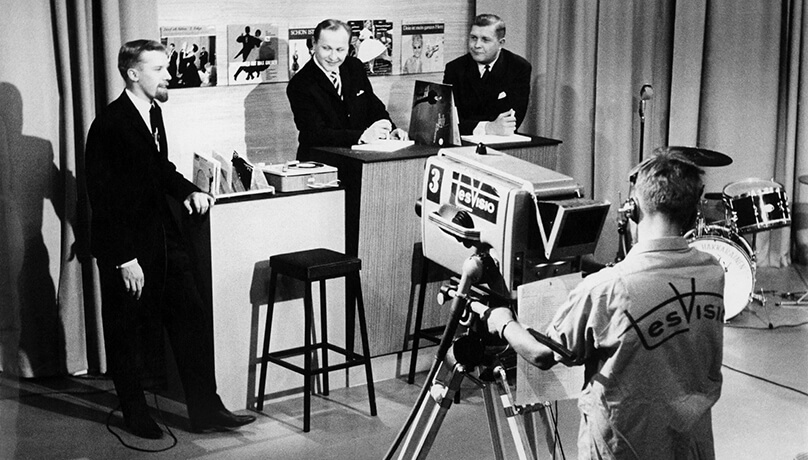How to plan a virtual event
It’s not an exaggeration to say that COVID-19 has become the biggest challenge the events industry has ever faced. Since March 2020, worldwide events of all sizes and purposes have been cancelled, rescheduled or brought online.
And with social distancing looking set to continue into the foreseeable future, the event industry will have to continue to virtualise events in order to offer highly sought experiences and generate revenue.
While COVID has brought about these unprecedented challenges, it has also offered a rare opportunity for event organisers to up their game when it comes to hosting high quality virtual events. Since March, virtual events have skyrocketed in popularity, and in turn have become more dynamic, more user friendly and more interactive.
This evolution of virtual events is an opportunity to offer high quality virtual events that attendees will pay for, long after the effects of the Coronavirus pandemic has ended, adding a string to the bow of every event organiser.
In this article, we’ll explore how you can successfully transition your event to a virtual one.
The benefits of virtual events
While many people have argued that virtual events can’t match the quality, engagement and intimacy of traditional events, it’s difficult to deny that online events boast their own unique benefits that physical events can’t compete with.
For example, a well organised virtual event can provide attendees with exactly the same content as a live event. On top of that, it can also help to cut down on, or avoid all together, costs such as:
- Travel expenses
- Venue, accommodation and catering overheads
- Lighting, sound and projection equipment
- Offline marketing such as leaflets, agendas and sponsorship handouts
This can make the content much more affordable for attendees, meaning they can access the same content at a smaller expense.
The benefits of an online event don’t stop there. Virtual events:
- Make an event more geographically accessible to a larger group of attendees
- Make an event more physically accessible to attendees (especially people with disabilities etc)
- Allow attendees to attend on their own agenda
- Allow attendees to connect with a global group of peers, which is great for networking.
Do virtual events work for all event types?
Online event formats will work better for some event types more than others. For example, they tend to work very well for corporate events such as:
- Conferences
- Seminars
- Meetings
However, entertainment events such as concerts and festivals tend to rely on a physical atmosphere in order to warrant charging attendees to attend. But that’s not to say they can’t work online.
If COVID-19 has taught us anything, it’s that even events thought as difficult to transition online can work in a virtual context with a bit of imagination. For example:
- Stand up comedy
- It’s actually possible to create a successful, intimate online comedy night. Creating a space where the comedian can connect with the audience allows for interactions and spontaneity. We discuss how to do this in our article about planning comedy events.
Read our guide for more on running a virtual comedy event.
- Intimate, interactive concerts
- Although online concerts won’t have the same heart-pumping energy as a live venue concert, there is a way to make this event type successful in an online format. For example, acoustic sets played on Zoom to a live audience can be just as impactful as a live concert, and can even help bring the audience closer to the artist. You can use social media or in-app chat to make it more interactive, even requesting your favourite tracks.

Virtual event planning – Take your event online
We’ve covered the fact that online versions are possible for most event types, and that online event formats have their own unique benefits. Now, it’s time to start planning your virtual event.
Planning a virtual event isn’t dissimilar to planning a normal event, however there are some key differences that you’ll need to consider when moving your event online. Depending on what type of event you’re hosting, you’ll need to reassess your normal planning considerations.
Read on for instructions on how to transition your event online.
Review your event goals and set new ones
When you decide to transition an event online, it’s natural that your virtual event will have a different impact on your attendees compared with a traditional event. This may not be better or worse – just different. This means that you’ll need to adjust the goals and KPIs of your event to measure how successful the online event really is.
If you don’t reevaluate your event’s goals once it’s been reformatted, you may end up trying to achieve the same results as you would expect in a traditional event. This can result in a waste of money and misguided efforts.
For example, traditional event goals and targets might look like:
-
-
- Ticket sale revenue
- Sponsorship
- Customer satisfaction surveys
- PR opportunities
- Photos, videos etc.
-
In an online setting, event goals can look similar, but might also include:
-
-
- Growth of an online community
- Many industry conferences use LinkedIn and Slack to build a virtual community where like-minded attendees can network online. This also offers a space to push out relevant content to a very warm and engaged audience.
- Growth of an online community
-
- Sponsorship
- Online events can still secure excellent sponsorship, as long as you’re able to demonstrate that there will be a strong turnout that’s relevant to your sponsor. The things they’ll sponsor will be different, too. Think of parts of the virtual event that they might be able to sponsor.
- Sponsorship
-
- Increase in online traffic
- Online events mean that attendees are far more likely to engage with websites, apps and social media. encouraging them to use these platforms, you can generate more traffic to a website, landing page or application, as well as followers.
- Increase in online traffic
-
- Increase in subscribers to product/email/other
- If you have anything that your attendees can subscribe to, for example, some software, a newsletter or another virtual event, then you can measure how your virtual event increases sign ups.
- Increase in subscribers to product/email/other
-
- Increase in online conversation about your event’s topic
- Online conferences are a great place to encourage online conversations as the attendees are already using their devices to connect. Engaging in social listening to measure conversations with your hashtags can help you identify how many people are engaged in your event.
- Increase in online conversation about your event’s topic
-
- Ticket sale revenue
- Attendees will typically expect to pay less for a virtual event, but they will still pay if they see the value. Make sure you price appropriately and plan your tickets for a ROI (Return on investment).
- Ticket sale revenue
-
Choose a virtual event platform
Next, you need to think about what virtual event platform you’ll use for your event.
Since COVID-19 arrived in early 2020, online conferencing platforms have flourished and adapted to help keep people connected in the most flawless way possible. That means many platforms and software now offer more connectivity, better usability and adaptations that allow for meaningful interactions. For the events sector, this has been a welcome and necessary development, allowing events to go ahead with fewer technical issues.
However, finding the right platform for your event depends on your own specific needs. There are a huge number of premium online event platforms that work to enhance the event experience for attendees and event planners. You can find a list of these premium event platform providers here.
Some of the better known event platforms include Brella, Workcast, and INXPO. These spaces are used because they have features that lend themselves to online events, such as:
-
-
- Virtual lobbies
- Public and private chats
- User polls
- Sponsor areas and ads
- Reporting on user engagement metrics
-
For conferences and seminars many of these features are crucial in order to measure success and generate interaction between users.
Alternatively, many online events are hosted on Zoom. This platform lends itself to a huge range of online events, and allows for the speakers to see attendee faces on camera, giving it a much more intimate and interactive feel. This is something that is particularly important for entertainment based events.

Choose engaging speakers and performers
For events such as conferences and webinars, speakers will always be the bread and butter of the event. Without good speakers, you’ll find it hard to generate an interest and this could easily result in low attendance. Equally, well known performers or artists are crucial in order to generate buy-in for entertainment-based and industry events.
These high profile speakers require fair payment. Just because they’re giving the talk from home instead of travelling doesn’t mean they’re worth less or require less money. If anything, they should make up for a large part of the whole event budget – especially as you’re likely to have made big savings by avoiding normal event overheads.
So, seek out the most authoritative speakers, guests, and performers for your event. The audience will be more engaged by who is sharing content at your event than any other factor, so it’s important this area is treated as a priority if you want to see a strong buy in. To make sure your speakers are fully equipped for the virtual event, ship out equipment such as webcams and mics to make sure they’re prepared with decent technical equipment.
Choosing thought leaders or authoritative figures in your event’s sector can also act as a good trust signal for your event. The more high profile speakers/performers are, the more likely people will see your event as high value. Plus, these speakers are likely to share the details about your event with their wider network, acting as “influencers,” and helping you reach more potential audience members.
For more information, check out our guide on choosing a guest speaker for your event.
Rework your event’s content for digital consumption
Now it’s time to make sure your event’s content is optimised for digital consumption.
Transitioning your event online shouldn’t restrict the actual content you can present, but it may need to be presented slightly differently.
For example, most event apps allow speakers to share their screen to present a presentation online. However, online, this presentation should be simple and quick to load to make sure there’s no lag in the presentation – something that a lot of images or animations can cause.
Key speakers can engage in online panel discussions in front of a live digital audience. These speakers need to have the ability to un-mute themselves so that they can interact with one another. You can make this easier by having an event planner co-ordinating the questions during the event.
For concerts, comedy shows and any other type of entertainment-based events, you’ll need to think more out of the box to rework your content to fit online. Finding a way to connect with the audience through the screen is crucial.
You can do this by:
-
-
- Using a platform that allows you to see the audience’s faces so performers can react
- Asking guests to request songs/interact in the live chat
- Having different tiers of guests – those who pay more for a ticket can play a more interactive role in the event.
-
You can also keep these events smaller to ensure that the audience feel like they are part of something more intimate and special.
Make sure your online event is interactive
A myth about online events is that they lack interaction. However, a well planned virtual event can actually generate a huge amount of interaction between attendees, and between attendees and the hosts. To enable interaction, attendees simply need a platform that lets them, along with encouragement from the event organisers.
There are lots of ways to encourage interaction. These include:
-
-
- Including a real time chat box during the event
- Often, events such as online conferences will have a chat box during the talks where attendees can discuss with their peers in real time. These conversations can be monitored by an adjudicator who then picks key questions or insights to put to the speaker when they’ve finished their talk. This helps the attendees feel like the event is worth attending in real time instead of watching at a later date. It also adds interactive value that they wouldn’t even be able to achieve at a more traditional event.
- Including a real time chat box during the event
-
- Online “Breakout rooms”
- Creating “breakout rooms” where attendees can meet and discuss the event allows people to connect with their peers and network effectively. This adds another layer of value that will make your virtual event more attractive to attendees.
- Online “Breakout rooms”
-
- Creating an event Slack channel
- Slack channels that accompany events can help attendees connect with peers and organise their ideas into various different channels. For example, there might be a channel for each talk. This helps encourage interaction amongst guests and also allows guests to reach out to speakers via private chat, too.
- Creating an event Slack channel
-
- Shared notes in Google Doc
- Providing an official Google doc for shared note taking is a great way to encourage interaction between attendees. The shared end product will also provide the attendees with a great takeaway from the event.
- Shared notes in Google Doc
-
Make your online event easy to access
As with any event, an online event needs to be as accessible as possible. Naturally, online events are easier to access geographically as the attendees don’t need to travel. However, there are other things to consider.
For example, you need to:
-
-
- Make sure the date and time of your event is convenient for most of the attendees
- If you’re expecting a worldwide audience, make sure you share what time the event starts in everyone’s timezone.
- Make sure the date and time of your event is convenient for most of the attendees
-
- Make sure the platform you choose is easy to access and use.
- Some of the more bespoke online event platforms may be difficult to download or may even be a turnoff for attendees. Make sure there is an option for Mac, PCs and those with Microsoft. Access to the event should be easy and as hassle free as possible.
- Make sure the platform you choose is easy to access and use.
-
- Make sure the price is affordable and relative to the content the audience will be
- As mentioned before, attendees will expect to pay less for online events, so make sure you price appropriately, and highlight the value they’ll get for buying a ticket.
- Make sure the price is affordable and relative to the content the audience will be
-
Use digital marketing to increase attendees
Finally, once you’ve planned your virtual event, you need to make sure people know about it.
If you’ve transitioned your event to be online, you should be left with lower expenses than what you’d normally have from a more traditional event. It’s worth investing more budget into your digital marketing campaigns than normal to make sure your event gets as much reach as possible.
Digital marketing allows you to advertise to the people who are most likely to respond positively to your event’s content. This allows you to cultivate a very targeted audience and drive up awareness amongst the people who are likely going to attend. Digital marketing also allows you to track sign ups and ticket sales as a direct result of your marketing efforts. This means you’ll be able to get an instant idea of how successful your online event has been in terms of ROI (return on investment).
In order to do this you need to:
-
-
- Develop a core digital marketing strategy to reach as many relevant people as possible in the run up to your event
-
- Use social media to engage in the run up and during the event
- You should make sure you’re engaging with potential attendees across all your social media channels. Share their content when they’ve mentioned you, respond to all their comments and keep them engaged in the pre-event conversation.
- Use social media to engage in the run up and during the event
-
- Provide sponsors with data about attendees
- Once you have a good amount of attendees registered off the back of your marketing efforts share this data with potential sponsors. This is a great way to land better sponsorship deals and find other sources of revenue from the event.
- Provide sponsors with data about attendees
-
Event planning and marketing advice from 20 Bedford Way
While traditional events will always have their place in the world, it’s no secret that online events are starting to carve out a bigger share of the market. Marketing and planning an online event is a different challenge, and something that most event planners have less experience in.
To find out how you can make your virtual event a success, the event planning experts at 20 Bedford Way would love to help you. Our digital marketing experts can help you transition any event to an online format. And, when the world’s ready to start having in-person events again, our central London venue will be ready waiting for you.
For more information, call us today on 020 7612 614.
For more tips on hosting a virtual event, click to read what we’ve learned about planning online events.
Main image: Presenter Antti Einiö in the Tesvisio studio via Flickr




